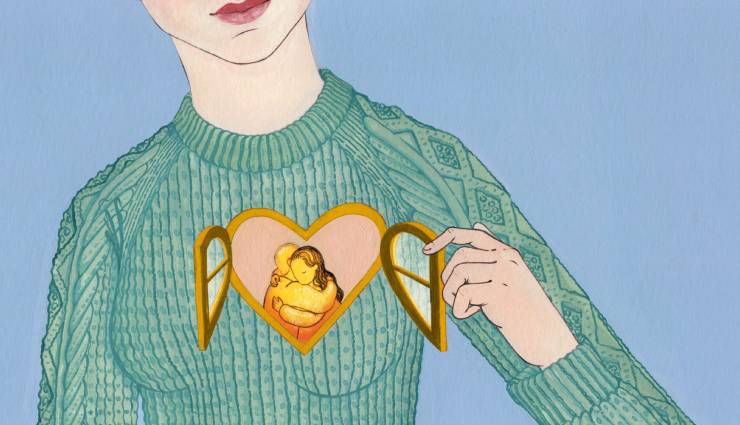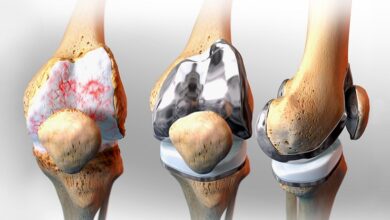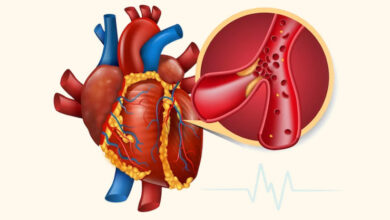Forgiveness’s Impact on Both Physical and Mental Wellness; 8 Recommendations to facilitate

Whether it’s a simple argument with your spouse or a long-term grudge against a family member or friend, unresolved issues can hurt your mental and physical health more than you think. Fortunately, researchers have recently discovered that giving can improve your health. This article delves into the correlation between forgiveness and mental and physical health.
What is the true meaning of forgiveness?
We have all been hurt by someone’s words or actions. However, moving past these issues or ignoring what happened does not mean we have forgiven them. Forgiveness means letting go of anger and dealing with someone who has hurt us with kindness and empathy.
The other party’s abuse or inappropriate behavior may still be unacceptable and unforgivable for you. Still, you can understand the suffering or the situation that they were in. In that case, your resentment and torment will decrease, and you will suffer less.
Many people mistakenly assume that forgiveness is necessarily associated with reconciliation. For example, there is a possibility that a person has cut off his relationship with his parents due to a history of child abuse or neglect. In this situation, forgiveness does not mean that you will get back together with them. You can only forgive them in your mind.
Types of forgiveness
1. Another forgiveness
Most of the time, forgiveness means to forgive others. Another person may have hurt us for various reasons, some of which include:
- Betrayal ;
- ill-considered words;
- aggressive behavior;
- physical contact.
The value and type of relationship, the probability of re-occurrence of harm, and the severity of the offense or mistake made by the other are among the factors influencing the forgiveness of the other.
2. Forgive yourself
Sometimes, it takes a lot of effort to forgive ourselves for a mistake because we might be upset about something we said or did or didn’t do. If we cannot forgive ourselves, we will feel shame, guilt, and self-destruction, which may have negative consequences for our health, such as depression and suicide.
3. Forgiveness of an uncontrollable situation
Sometimes, we must forgive the bad and uncontrollable situation in which we are caught. Circumstances such as an epidemic, natural disasters such as earthquakes, floods, and storms, the death of a loved one, or hearing the news of an incurable disease may make us angry. We may blame God for this incident and feel powerless, desperate, and hopeless. We may have a negative view of the world if we cannot forgive these conditions.
The effect of forgiveness on life
You may ask yourself, what effect does the forgiveness of others have on us? Why should we forgive ourselves, others, or even the situation in which we are caught? Researchers have five crucial answers to these questions.
1. The effect of forgiveness on mental health
Forgiveness reduces depression, anxiety, and critical mental disorders. In 2020, American researchers conducted a study on female nurses to measure the impact of forgiveness on the health and mental well-being of middle-aged people. Based on the results of this research, forgiveness has a significant relationship with positive psychosocial outcomes, such as the formation of positive emotions and social solidarity, and the reduction of adverse psychological effects, such as depression. Therefore, the researchers concluded that forgiveness helps to improve people’s mental health.
Self-forgiveness has the same effect. In 2016, Korean scientists researched the effect of self-forgiveness on reducing depression. In this study, 311 participants answered questions about forgiveness, self-compassion, and symptoms of depression. The obtained results indicated that self-forgiveness reduces the symptoms of depression. Self-forgiveness helps people have positive feelings and forget their unpleasant and painful feelings through understanding and kindness.
2. Stress Control
According to research, the inability to forgive causes feelings such as anger, hostility, and stress, which may endanger our physical and mental health.
After examining more than 330 people between the ages of 16 and 70, Dutch researchers concluded that people of any age will be less stressed if they forgive others. Reducing stress also reduces mental health problems. These researchers believe that although forgiveness is not the only way to deal with adversity, it is one of the most effective responses to reduce stress and improve health.
On the other hand, stress and cortisol secretion have many adverse effects on body systems. The constant release of this hormone shrinks parts of the brain, including the hippocampus, which is responsible for converting experiences into memories. For this reason, not forgiving and letting go of some stress related to it will have a potential adverse effect on memory.
3. Anger control
It’s perfectly normal and healthy to feel angry occasionally, but if you’re always angry about past injustices, your physical, mental, and emotional health may be at risk. Forgiveness helps us let go of grudges and our minds and be at peace with ourselves. In this situation, we will feel less dangerous and have more energy.
4. Increase self-esteem
Forgiveness increases your self-esteem. Forgiveness combined with mutual understanding and compassion for someone who has hurt you may change your outlook on life.
5. Activation of the parasympathetic nervous system
Researchers believe that forgiveness affects the parasympathetic nervous system. As a result, breathing and heart rate are calmed down, and the function of the digestive system is also improved. The sympathetic and parasympathetic nervous systems work together. The functioning of these two systems together regulates your blood pressure and heart rate. The parasympathetic nervous system relaxes the nervous system. Anything you do to calm yourself down when stressed, including practicing forgiveness, activates this nervous system, leading to a more excellent balance between the sympathetic and parasympathetic nervous systems.
How do we make forgiveness a part of our life?
Forgiveness is a conscious choice. We choose to be kind to someone who has wronged us. To make forgiveness a part of life, we must go through 8 steps. Going through these steps helps us to have a generous attitude in life and to see and understand the impact of giving on our mental and physical health.
1. Sorry from the bottom of my heart
Forgiving others because you think you have no other way or think it is by religious orders will make you feel better. However, research results show that people can resume normal relationships with the other party who believes that no one is not complete. Even if the other party has not apologized to them, these people can forgive him wholeheartedly. On the other hand, if you do this to save the relationship with the other person, the situation may worsen.
2. Let go of expectations
An apology may not change your relationship with the other person or lead to a reciprocal apology. You will be satisfied if you expect a change or a reciprocal apology.
3. Practice mutual understanding
Try to put yourself in other people’s shoes to understand their thoughts and feelings. This makes it easier to understand why they behave the way they are or what they say.
4. Decide to forgive
When you choose to ignore, you must finish it with constructive action. If you can’t talk to the person who wronged you, write down your feelings somewhere. Write how you feel in a letter you may never send him. Expressing your feelings in words will help you to let go of negative thoughts and determine once and for all what happened.
5. Forgive yourself
Sometimes, we blame ourselves for being wronged and being a victim. Still, if we are kinder to ourselves, we forgive ourselves more easily. Remember that we are not always to blame for what happened. What happened does not mean that we are worthless. For example, if your wife cheated on you, you are not to blame; her illicit relationship does not indicate your worthlessness.
6. Always remind yourself of the impact of forgiveness on mental health
As we said, forgiving others, ourselves, or even tricky situations has positive effects. However, sometimes, we forget the impact of forgiveness on mental health. As a result, you need to remind yourself occasionally that forgiveness improves your health more than it benefits the other person.
7. Talk to someone about your feelings
Sharing your thoughts and emotions with a trusted friend or family member can assist you in effectively practicing forgiveness. By talking to such people, you may find a different perspective on the problem and deal with it more easily.
8. Ask for help from professionals
Forgiveness is not something that happens overnight. Coping with painful experiences takes time, effort, and constructive action. With the help of talking to a professional psychotherapist, you can control your emotions better, improve your relationships, and have a healthier and happier attitude.
you say
Forgiving others is difficult, especially if what happened deeply hurts you. However, it would help if you did not underestimate the impact of forgiveness on life. With the help of the eight steps we introduced, you can benefit from the benefits of forgiveness for your health.
Have you ever forgiven others for past mishaps? What other ways do you think there are to practice forgiveness?








